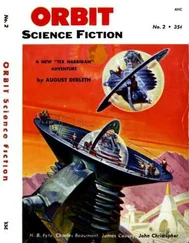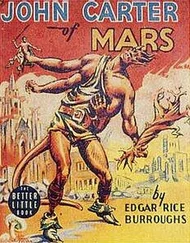Philip Dick - Mary And The Giant
Здесь есть возможность читать онлайн «Philip Dick - Mary And The Giant» весь текст электронной книги совершенно бесплатно (целиком полную версию без сокращений). В некоторых случаях можно слушать аудио, скачать через торрент в формате fb2 и присутствует краткое содержание. Жанр: Фантастика и фэнтези, на английском языке. Описание произведения, (предисловие) а так же отзывы посетителей доступны на портале библиотеки ЛибКат.
- Название:Mary And The Giant
- Автор:
- Жанр:
- Год:неизвестен
- ISBN:нет данных
- Рейтинг книги:4 / 5. Голосов: 1
-
Избранное:Добавить в избранное
- Отзывы:
-
Ваша оценка:
- 80
- 1
- 2
- 3
- 4
- 5
Mary And The Giant: краткое содержание, описание и аннотация
Предлагаем к чтению аннотацию, описание, краткое содержание или предисловие (зависит от того, что написал сам автор книги «Mary And The Giant»). Если вы не нашли необходимую информацию о книге — напишите в комментариях, мы постараемся отыскать её.
Mary And The Giant — читать онлайн бесплатно полную книгу (весь текст) целиком
Ниже представлен текст книги, разбитый по страницам. Система сохранения места последней прочитанной страницы, позволяет с удобством читать онлайн бесплатно книгу «Mary And The Giant», без необходимости каждый раз заново искать на чём Вы остановились. Поставьте закладку, и сможете в любой момент перейти на страницу, на которой закончили чтение.
Интервал:
Закладка:
"How do you get to be a nurse?" she asked. "You take courses, like anything else."
Mary Anne's face glowed. "It must be wonderful to be able to devote your life to something real and important. A cause-like nursing."
Distastefully, Tweany said: "Bathing old, dried-up men. There's no fun in that."
Mary Anne's interest waned. "No," she agreed, sharing his aversion. "I wouldn't like that. But it wouldn't be that all the time, would it? Mostly it would be healing people."
"What was so fine about the war?" Tweany said. "You never seen a war, young lady. You never seen a man get killed. I've seen that. War's an awful business."
She didn't mean that, of course. She meant the unanimity that had arisen during the war, the evaporation of internal hostility. "My grandfather died in 1940," she said aloud. "He used to keep a map of the war, a big wall map. He stuck pins in it."
"Yes," Tweany agreed, unmoved.
But she was greatly moved, because Grandfather Reynolds had been a vast and important person to her; he had taken care of her. "He used to explain to me about Munich and the Czechs," she said. "He loved the Czechs. Then he died. I was-" She computed-"I was seven years old."
"Very young," Tweany murmured.
Grandfather Reynolds had loved the Czechs, and she had loved him; and, perhaps, he was the only human being she had ever had real affection for. Her father was a danger, not a person. Since one certain night when she had come home late, and he, in the living room, had caught her, had really caught her: not in a game. Since that night she had been afraid. And he, the grinning little man, knew it. And enjoyed it.
"Ed was working in a defense plant in San Jose," she said. "But my grandfather was home; he was old. He used to own a ranch in the Sacramento Valley. And he was tall." She felt herself drifting, falling away into her own thoughts. "I remember that ... he used to lift me up and swing me around a long way off the ground. He was too old to drive; when he was a boy he rode on a horse." Her eyes shone. "And he wore a vest, and a big silver ring he bought from an Indian."
Getting to his feet, Tweany walked around the apartment pulling down the window shades. He leaned over Mary Anne to reach the window behind her; he smelled of beer and shirt starch and men's deodorant. "You're a nice-looking girl."
She roused herself a little. "I'm too thin."
"You're not a bad-looking girl," he repeated, looking down at her legs. Instinctively she drew them under her. "Do you know that?" he demanded, in an oddly hoarse voice.
"Maybe." She stirred fitfully ... it was getting late. Tomorrow morning she had to be up early; she had to be alert and fresh when she went to see about the ad. Thinking of it, she took hold of her purse.
"You a friend of Nitz's?" Tweany asked.
"I suppose."
"You like him?" He settled himself facing her, his body slack. "You like Nitz? Answer me."
"He's all right," she said, feeling uncomfortable.
"He's little." The man's eyes were full of brightness. "I bet you prefer your men large."
"No," she said irritably, "I don't care." Her head had begun to ache, and Tweany's closeness seemed oppressive. And she hated his beer smell: it reminded her of Ed. "Why don't you clean this place up?" she demanded, shifting away from him. "It's an awful mess-junk everywhere."
He sat back and his face collapsed into itself.
"It's terrible." She got to her feet and collected her coat, her purse. The apartment was no longer interesting: she blamed him for spoiling it. "It stinks," she said. "And it's all littered and I'll bet the wiring is bad."
"Yes," Tweany said. "The wiring is bad."
"Why don't you have it fixed? It's dangerous."
Tweany said nothing.
"Who cleans up?" she demanded. "Why don't you have somebody come in?"
"I have a woman come by."
"When?"
"Once in a while." He examined his jeweled wristwatch. "It's time we were getting back, Miss Mary Anne."
"I suppose. I have to be up early tomorrow." She watched him go to get his coat; he had withdrawn back into his shell of formality, and it was her fault. "I'm glad your hot water heater's okay, she said, as a sort of apology.
"Thank you."
As they walked down the dark night street, Mary Anne said, "Tomorrow I'm going job hunting."
"Are you."
"I want to work in a record shop." She felt his disinterest, and she wanted to draw him back. "It's that new one that's opening." In the late air she trembled.
"What's the matter?"
"My sinuses. I'm supposed to go down and have them drained. Changes of temperature make them hurt."
"Will you be all right?" he asked. They had come to the edge of the business section; ahead, along the street of locked shops, she could see the red glow of the Wren.
"Yes," she said. "I'm going home and go to bed."
"Good night," Tweany said, and started away.
"Wish me luck," she called after him, suddenly feeling the need of luck. Loneliness closed in, and she had to force herself not to flee after him.
Tweany waved and continued on his way. For a moment she stood anxiously watching the diminution of his figure. Then, holding onto her purse, she turned toward her own neighborhood.
5
At eight-thirty the next morning Mary Anne entered the telephone booth in Eickholz's Creamery and dialed California Readymade Furniture. Tom Bolden answered.
"Let me talk to Edna," Mary Anne said.
"What? Who do you want?"
When she had got hold of Mrs. Bolden, Mary Anne explained: "I'm sorry, but I can't be at work today. It's my period and I always have a lot of difficulty."
"I see," Mrs. Bolden said, in a neutral voice that showed neither doubt nor belief, only an acceptance of the inevitable. "Well, there's not much we can do about it. Will you be back on your feet tomorrow?"
"I'll keep you posted," Mary Anne said, already hanging up. The hell with you, she thought. You and your factory and chrome chairs.
She left the creamery. High heels tapping against the pavement, she walked quickly up the sidewalk, conscious of her appearance, aware of the texture and style of her hair, her careful makeup, the scent of her perfume. She had spent two hours grooming herself, and she had eaten only a piece of toast with applesauce and a cup of coffee. She was on edge, but not apprehensive.
The new little record shop had been the Floral Arts Gift Shop. Carpenters were working busily in the newly decorated store, installing overhead recessed lighting and laying carpets. An electrician had parked his truck and was lugging phonographs inside. Cartons of records were piled everywhere; in the rear a pair of workmen were tacking squares of soundproofing to the ceiling of the half-completed booths. The work in progress was directed by a middle-aged man in a tweed suit.
She crossed the street and walked slowly back, trying to make out the figure that loomed over the carpenters. Waving a silverhandled stick, the man paced back and forth, giving instructions, laying down the law. He walked as if the ground came into existence at his feet. He was creating the store from the puddle of fabrics, boards, wiring, tiles. It was interesting to see this big man building. Was he Joseph R. Schilling? She gave up her prowling and approached the store. It was not yet nine.
Passing through the entrance was a sudden leaving of the emptiness of the street; she found herself in the midst of activity. Large and important objects had been collected here; she felt the tightness, the reassuring pressure that meant so much to her. While she was inspecting a newly built counter, the tweed-suited man glanced up and saw her.
"Are you Mr. Schilling?" she asked, a little awed. "That's right."
All around them carpenters were hammering; it was noisier than California Readymade. She took a deep, pleased breath of the smell of sawdust, the stiff unfolding of new carpets. "I want to talk to you," she said. Her wonder grew. "Is this your store? What's all the glass for?" Workmen were carrying panes to the rear.
Читать дальшеИнтервал:
Закладка:
Похожие книги на «Mary And The Giant»
Представляем Вашему вниманию похожие книги на «Mary And The Giant» списком для выбора. Мы отобрали схожую по названию и смыслу литературу в надежде предоставить читателям больше вариантов отыскать новые, интересные, ещё непрочитанные произведения.
Обсуждение, отзывы о книге «Mary And The Giant» и просто собственные мнения читателей. Оставьте ваши комментарии, напишите, что Вы думаете о произведении, его смысле или главных героях. Укажите что конкретно понравилось, а что нет, и почему Вы так считаете.










